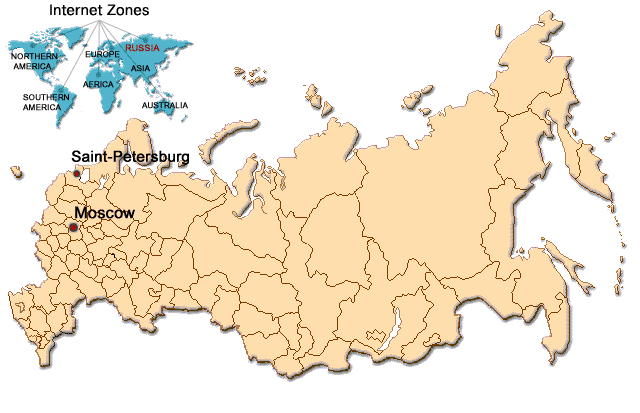IT around the world: Russia
In the first of an on-going series examining IT markets around the globe, we look at whether investing in Russia is worth the risk – and how to go about it the right way.


Hardware's share of the market has been declining, but still makes up the bulk it. According to the PMR report, 80 per cent of IT spending in 2000 went to hardware; now it takes about 55 per cent. "It's an interesting opportunity for vendors of hardware," said Farish. "The opportunities in Russia are growing faster than most companies in Europe."
But the UK hasn't typically been a strong producer of hardware or software, especially when compared with the US and Asia. "Where the UK is strong is in IT services it's a world leader," he explained. "The difficulty in Russia is that IT services are under developed Russia is not really ready for the expertise which the UK specialises in."
"Outsourcing is very underdeveloped. There's a mentality among big Russian companies that you build your infrastructure around you," he added.
That said, IDC predicted the Russian IT services market would maintain growth above 21 per cent over the next few years, and was expected to hit a worth of over $3.65 billion last year. Still, local companies dominate, with just one international player slipping into the top ten for the services market, and three firms IBS, LANIT and CROC holding a combined market share of 13 per cent, the IDC report said.
The top sectors for tech growth are telecoms, financial services and government, as well as retail, transport and manufacturing. While the oil and gas sector might seem a sweet target, Gartner warned that the value proposition is harder to pitch to companies which are already so profitable.
There are a few key verticals which Gartner analyst Sharon Metz advised would see big growth, including the railways it crosses 11 time zones, so tech is increasingly vital and other transportation. "High tech is a lifeline how do you run a railway without it?"
Challenges
Sign up today and you will receive a free copy of our Future Focus 2025 report - the leading guidance on AI, cybersecurity and other IT challenges as per 700+ senior executives
Unsurprisingly, challenges remain. Despite Medvedev's self-proclaimed love of tech, state intervention could ruin the IT love-in. Corruption remains an issue, and there are many barriers to start-ups and simply doing business. Metz added that there isn't a good stable business environment, especially from a legal standpoint. Indeed, the World Bank rated Russia 106 out of 178 countries on its ease of doing business' scale.
In research released by BT last year, the five BRICS Brazil, Russia, India, China and South Africa were seen as having less advanced technology than the West. Of those five, Russia was the country seen as "the most concern" to do business in.
Russia also faces a skills crunch. Unlike the UK, it's both on the supply and the demand side it's hard to find workers to develop software, and it's hard to find people to use it in business. "The consumer perspective is tougher. The middle class is slowly growing, but there's still not a lot of disposable income," Gartner's Metz noted.
In addition, the booming IT sector is already driving up wages. "It's starting to get expensive, especially in Moscow," Metz noted. "For that reason a lot of companies are going out to the regions We get constant feedback that really big contracts are cut in Moscow, but executed in the regions."
And unlike most emerging markets, the population is not growing, as a patch-work healthcare system and rampant substance abuse takes its toll, with many men dying in their sixties.
There are also challenges getting around and even into the country IT PRO travelled to Moscow last year, and they don't make it easy. "There are migration issues. It's not easy to get in and move around," Metz said.
Freelance journalist Nicole Kobie first started writing for ITPro in 2007, with bylines in New Scientist, Wired, PC Pro and many more.
Nicole the author of a book about the history of technology, The Long History of the Future.
-
 Microsoft CEO Satya Nadella wants an end to the term ‘AI slop’ in 2026
Microsoft CEO Satya Nadella wants an end to the term ‘AI slop’ in 2026News Microsoft CEO Satya Nadella might want the term "AI slop" shelved in 2026, but businesses will still be dealing with increasing output problems and poor returns.
-
 New security features are coming to Microsoft Teams this month
New security features are coming to Microsoft Teams this monthNews From 12 January, weaponizable file type protection, malicious URL detection, and a system for reporting false positives will all be automatically activated.
